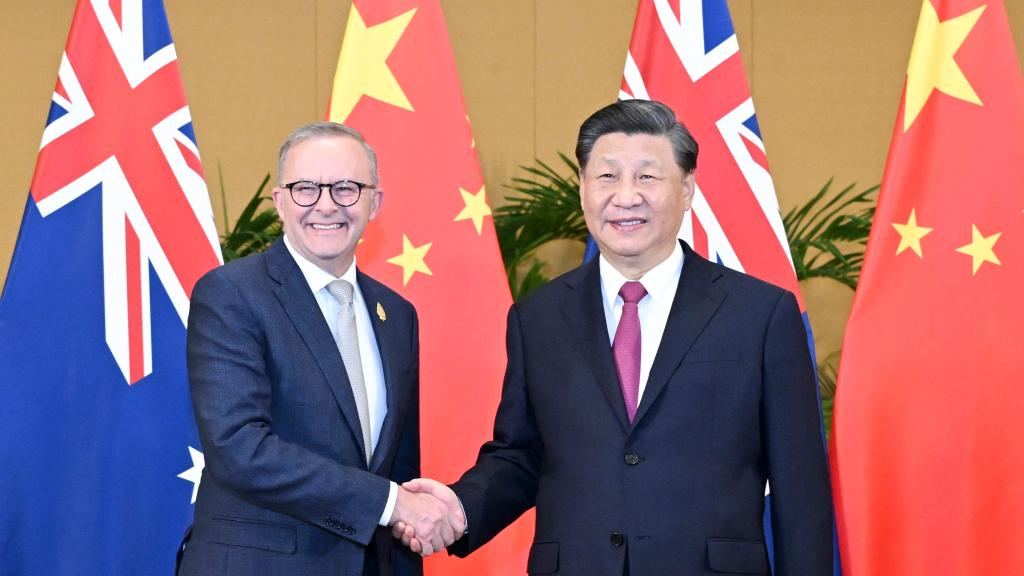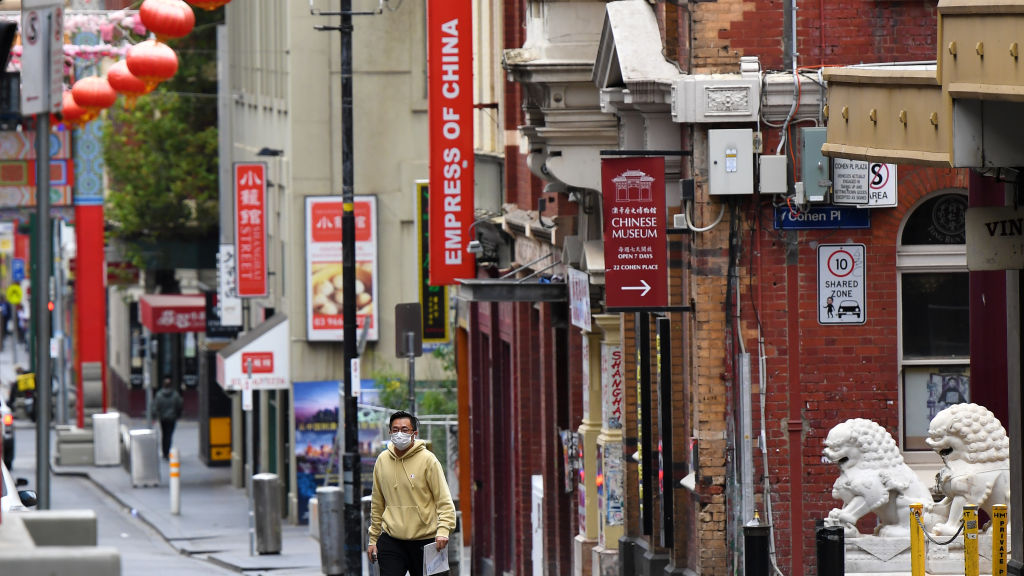
Chinese President Xi Jinping meets with Australian Prime Minister Anthony Albanese in Bali, Indonesia, November 15, 2022. /Xinhua
Chinese President Xi Jinping meets with Australian Prime Minister Anthony Albanese in Bali, Indonesia, November 15, 2022. /Xinhua
Editor's note: Daryl Guppy is an international financial technical analysis expert. He has provided a weekly Shanghai Index analysis for media for the Chinese mainland for more than a decade. Guppy appears regularly on CNBC Asia and is known as "The Chart Man." He is a national board member of the Australia China Business Council. The article reflects the author's opinions and not necessarily those of CGTN.
The most significant feature of the meeting in Bali between Chinese President Xi Jinping and Australian Prime Minister Anthony Albanese is that the meeting took place. The outcomes of the meeting were less important than the meeting itself – the first face-to-face meeting between leaders of these countries in nearly three years. The meeting is like the first icy drops of liquid water in spring, and does signal the potential for warmer times to follow.
Foreign Minister Penny Wong prefers to refer to these steps as a stabilization of the relationship rather than a re-set. It's an accurate description because years of Australian anti-China rhetoric, relentless media hysteria and policy decisions make it difficult for the relationship to re-set back to the conditions that previously prevailed. There is a new level of caution and it will take time and careful management to restore the once trusting relationship.
The next most significant feature was the dropping of previous demands by Australia that the meeting take place with preconditions. Prime Minister Albanese said "It is not in Australia's interest to not have dialogue with our major trading partners. So, having the meeting, there are no preconditions for the meeting."
The meeting is welcomed by Chinese investors who have projects and investments in Australia. For the past six years they have been increasingly reluctant to proceed with further investment in their Australian projects because of the uncertain political environment.
Chinese investors who own Australian vineyards have been severely impacted by export tariffs. Chinese investors in other market sectors not impacted by tariff changes are also relieved because there is now a possibility that further investment can proceed smoothly. One agribusiness investor I spoke to said he hoped this was an indication of a political change and that Australia would again welcome investment from China.
Australian businesses working with China are also optimistic. Business Council of Australia chief Jennifer Westacott, called it a "tremendous reset" and a "win for Australia."
"This creates an opportunity for business to come in behind that reset that the Prime Minister has done, to start building those business-to-business relationships, to start driving investment, to start driving job creation, to start driving new industry formation. This is a win for Australia," she said.

Chinatown in Melbourne, Australia, March 25, 2020. /Getty
Chinatown in Melbourne, Australia, March 25, 2020. /Getty
The real question for Australia is: "Where to from here?" Foreign Minister Wong will continue with her energetic diplomacy although this may need now to pivot towards working with China hand in hand in the region.
Next month marks the 50th anniversary of the diplomatic relationship between the two nations. Prime Minister Albanese said that this was a good opportunity to stabilize the relationship and return it to one based on equality, mutual respect and benefit and a commitment to coexist peacefully.
President Xi acknowledged Prime Minister Albanese's commitment to fix the relationship and added that China and Australia should "improve, maintain, and develop" the relationship, which has "encountered some difficulties" in the past few years.
This represents a significant change in the way Australia is approaching the relationship, moving away from unthinking obstructionism and bellicosity to a more measured and thoughtful approach built on better understating of China. It suggests there is an increasing role for the Department of Foreign Affairs and Trade in shaping China policy.
For Australia, one of the primary challenges in taking this path will be to reduce the level of reflexive anti-China reporting in Australian media. This, as much as any other factor, has been a driving force behind the persistence of Australia's poor relationship with China in recent years.
It is now up to other senior ministers to progress this dialogue and develop solutions which focus on what can be achieved that is of benefit to all.
(If you want to contribute and have specific expertise, please contact us at opinions@cgtn.com. Follow @thouse_opinions on Twitter to discover the latest commentaries in the CGTN Opinion Section.)